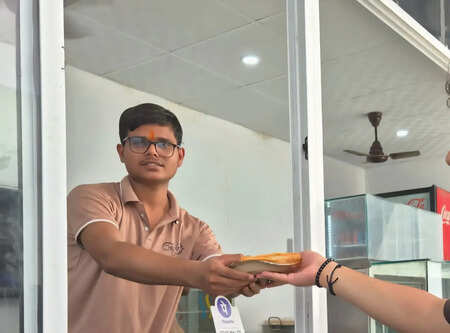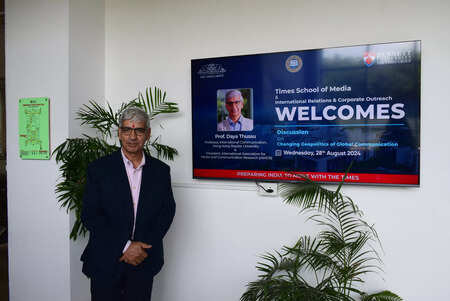Toilet Man transforms lives of manual scavengers
By Tanvi Mishra, Times of Bennett | Updated: Apr 21, 2018 15:13


Pathak said, “I convinced them by saying if they leave their current job, I will train them in other soft skills that will help you lead a better life.” The scavengers were reluctant because they had various officials come and talk to them about the same but no action was taken.
He then converted the bucket toilets with the
When he found success in rehabilitating 28 manual scavengers from Alwar, he began training them in various vocational jobs like embroidery, knitting, beauty parlour services etc. He said that this ensured that they will be able to earn a respectful livelihood.
In an aim to improve their lives further and have them gain a stand in the society, Pathak said, “We took them to the temple because social acceptance is very important.”
Ambedkar had given four indicators to know whether untouchability had abolished, he pointed out,
• That everyone will go to the temple to worship their deities.
• Everyone will go to a pond to take bath.
• They will draw water to drink.
• They will dine together.

“If we can achieve such results and improve lives, the government and other organisations can also do this on a bigger scale,” Pathak said.
“All these measures need to be followed up. We can teach young boys and girls the importance of hygiene who can carry the message forward. They can demonstrate the use of toilets and help others know how to clean them, “ Pathak said.
Talking about women’s hygiene, Pathak said that the country has many superstitions that are still being followed due to which ladies are restricted from entering temples, kitchens and attend any social gatherings. “Culture that has been prevalent for 5000 years will take time to change,” he said.
Sulabh has installed 1.5 million toilets in houses and have taken care of the fact that if women leave a soiled cloth or sanitary tissue in the washroom, Sulabh has it cleaned and then also explains to the ladies the consequences of leaving a used sanitary pad.
The practices that are undertaken in the country currently will gradually fade away because now the people are being told and reminded that their practices are unhygienic and unsafe. The toilets built by Sulabh across the country in various houses, none of them are non-functional because they are taken care of throughout the year.
“It is necessary to spread the message of correct hygiene practises and they need to be repeated time again to have people live a healthy life,” said Pathak.











